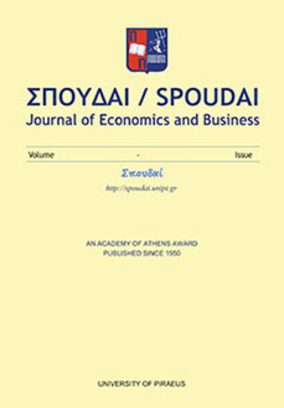Πειραματικά οικονομικά : μια εμπειρική ανάλυση
Part of : Σπουδαί : journal of economics and business ; Vol.57, No.2, 2007, pages 89-105
Issue:
Pages:
89-105
Parallel Title:
Experimental economics : an empirical analysis
Author:
Abstract:
Despite the fact that expected utility theory (EUT) constitutes the central theory of individual decision making under risk in economics, experimental findings of the last decades have shown that this theory does not give a good representation of human behaviour from a descriptive point of view. The purpose of this paper is the conduct of an experiment (the well-known in the experimental literature as the ‘Allais paradox’) in which subjects make choices between relatively safe and risky lotteries. According to our experimental results, there is clear indication that subjects violate one of the fundamental axioms of EUT: the independence axiom. The interpretation of the observed behaviour can be given by employing the so-called rank-dependent theory (RDT). In our case, RDT predicts an inverse-S shaped probability weighting function, which entails that decision makers overweight small probabilities and underweight large ones.
Subject (LC):
Keywords:
expected utility theory, experiment, common consequence effect, rank-dependent theory, probability weighting function
Notes:
Περιέχει σχήματα, πίνακες, σημειώσεις και βιβλιογραφία




